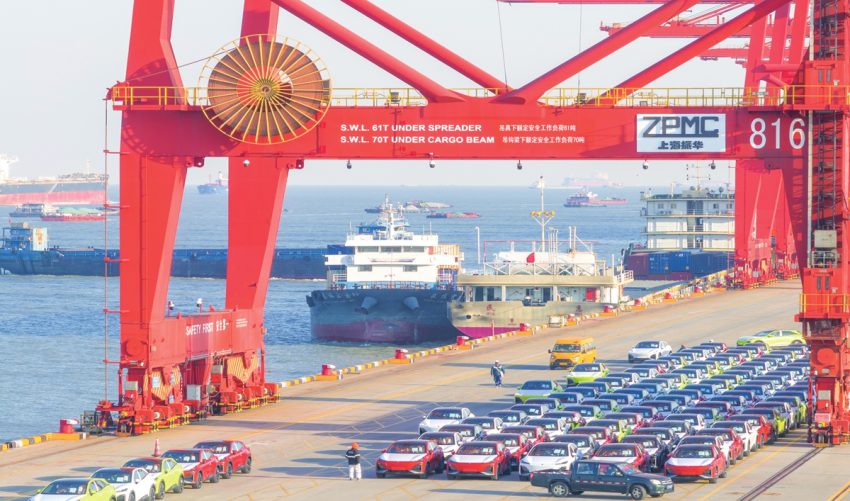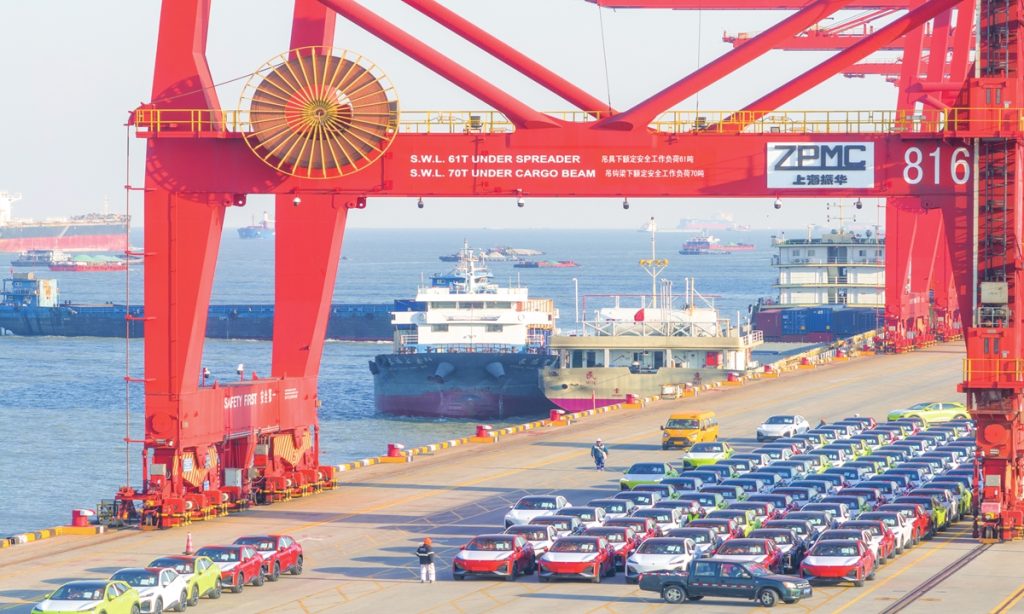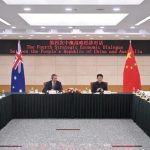
China-proposed Belt and Road Initiative maintains firm anti-corruption stance despite Western smears

China's firm pushing against corruption and ensuring the transparency in the joint construction of China-proposed Belt and Road Initiative (BRI) has been the long-standing and ongoing efforts since the very beginning, with a range of active measures ranging from supervision mechanism for participating enterprises overseas to corresponding standards and regulations to guide the projects, Chinese experts have noted, responding to some recent Western allegation over corruption in the joint initiative.
The remarks came as there are intensified moves by some Western media and organizations ramping up for another round of smears against the BRI as it just marked its 10 years of anniversary last year with great economic and social achievements announced for all participating countries.
Despite Western skeptics overstating the extent of opaque financial deals, violations of public procurement rules, and corruption in the projects, among other allegations, the BRI has managed to overcome these headwinds by continuously adhering to the principle of extensive consultation, joint contribution, and shared benefits.
Over the past decade, the Chinese government has signed more than 240 cooperation agreements for the joint construction of the BRI with over 150 countries and more than 30 international organizations. This has led to the establishment of a large number of cooperative projects, creating the world's broadest and largest international cooperation platform, Liu Jieyi, spokesperson for the second session of the 14th National Committee of the Chinese People's Political Consultative Conference, said in early March.
The prospects for the high-quality joint construction of the initiative remain promising, Liu noted, as it embarks on the new journey of high-quality development in the next decade.
The recently intensified allegation over corruption is one epitome of the West's intensified allegation targeting the BRI as it garners more world attention, Chinese experts added.
Ill-intended rhetoric
The intensified ill-intended rhetoric by the Western media and organizations targeting the BRI has recently emerged again as the initiative marks its 10-year anniversary last year.
A report by the Foundation for Defense of Democracies (FDD) released on February 27 claimed, groundlessly, that the BRI "has wrought social, economic, and environmental havoc," and that "massive corruption" took place under the initiative.
Titled "Tightening the Belt or End of the Road? China's BRI at 10," the report excessively sensationalizes alleged corruption issues related to the joint initiative by quoting biased sources and indulging in subjective speculation.
Such a dramatized report easily captured the attention of some Western media of its own peers. With the headline alleging the BRI "plagued by corruption and political backlash," a report by Fox News claimed, referring to the FDD's report, that the initiative "has failed to live up to its original goals."
The claims have served as another blatant attempt out of Western desperation and hatred for the BRI, Chinese experts said, as the initiative just celebrated its 10 years of anniversary with grand social and economic achievements last year.
Despite Western claims, over the past decade, through the concerted efforts of all parties involved, the jointly-constructed BRI has evolved from a Chinese proposal to an international practice, becoming a widely acclaimed international public good and cooperation platform.
Throughout the journey, there has been no shortage of skeptics throwing allegations at the initiative, with some Western media and politicians using any means to undermine the initiative as it garners increasing global attention and brings more benefits to the world, Song Wei, a professor at the School of International Relations and Diplomacy at the Beijing Foreign Studies University, told the Global Times.
"The expanding influence of China and the BRI continues, strengthening China's international image and favorability among developing countries. But, in the eyes of the West, there is a perceived 'threat,' leading to various forms of public opinion attacks and smear campaigns," Song noted.
In response to the Western accusations regarding corruption in the initiative, experts said that drawing such conclusions without a thorough understanding of the initiative is unfair.
Efforts have been made to counter anti-corruption by Chinese officials. This included regulations for supervising the behavior of Chinese enterprises overseas and requirements for their compliance, Song said, adding that these efforts have promoted both the efficiency and integrity of the joint construction of the initiative.
Robert Lawrence Kuhn, chairman of the Kuhn Foundation, also commented in a media interview that the initiative's commitment to integrity-based collaboration would help eliminate corruption and other illegal or immoral activities when "large sums of money are allocated to large projects," according to the Xinhua News Agency.
"Western countries cannot compete with us in terms of efficiency and providing genuine development opportunities to the participating countries, so they can only resort to various of allegations to attack and smear us," Mei Xinyu, a research fellow at the Chinese Academy of International Trade and Economic Cooperation, told the Global Times, responding to the corruption claims.
In addition, Mei acknowledged the importance for fighting against corruption, which "may be challenging in implementing large-scale international projects in any parts of the world," the expert said, noting that only by eliminating corruption can further high-quality development be pursued.
Zero tolerance for corruption
Since the launch of the BRI a decade ago, China has consistently regarded integrity as the moral "bottom line" and legal "red line" for jointly constructing the Belt and Road, according to China's discipline inspection and supervisory authorities. This clear stance was reiterated during the 3rd Belt and Road Forum for International Cooperation last October.
In a white paper titled "The Belt and Road Initiative: A Key Pillar of the Global Community of Shared Future," issued by China's State Council Information Office in October, 2023, it noted that the BRI was founded on the principles of extensive consultation, joint contribution and shared benefits, and it advocates win-win cooperation in pursuit of shared interests and the greater good, the Xinhua News Agency reported.
Moreover, the BRI is committed to the concept of open, green and clean cooperation on inclusive and sustainable development. It has zero tolerance for corruption, and promotes steady and high-quality growth, according to the white paper.
China has been actively promoting international cooperation in anti-corruption efforts while enhancing exchanges of experiences in clean governance. This has led to comprehensive improvements in the capacity for the corresponding joint construction of the BRI.
As of July 2023, China had ratified and enforced over 120 extradition and judicial assistance treaties with foreign countries. The country also signed anti-corruption cooperation agreements with 24 countries and international organizations, according to a report released on the website of the National Development and Reform Commission (NDRC), China's top economic planner, in December 2023.
Within the framework of cooperation agreements related to the BRI, provisions on anti-corruption and integrity have been included in agreements with 37 countries and international organizations, contributing Chinese solutions to the formulation of clean governance policies for the Belt and Road, the report by the NDRC said.
Moreover, Chinese government had organized more than 60 international cooperative training programs in the field of anti-corruption led by the Central Commission for Discipline Inspection and the National Supervisory Commission, according to the report.
The BRI's adherence to the principle of extensive consultation, joint contribution, and shared benefits has been meticulous, ensuring there is no room for backdoor deals or corruption, as China understands the detrimental impact of such practices on the fairness and effectiveness of the projects, Song said.
Meanwhile, experts have noted that the fundamental difference between China's aid to developing countries and that of the US and certain Western nations, which lies in China's policy of not attaching any conditions, whether political or economic. Additionally, this cooperation is founded on mutual benefit and respect, which includes no interference in the internal affairs of the participating countries.
"BRI is committed to the concept of open, green and clean cooperation on inclusive and sustainable development. Regardless of the allegations made by the West, the evidence unequivocally demonstrates the positive changes brought about by the initiative in participating countries over the past decade, with the promise of continued progress in the future," Song said.



